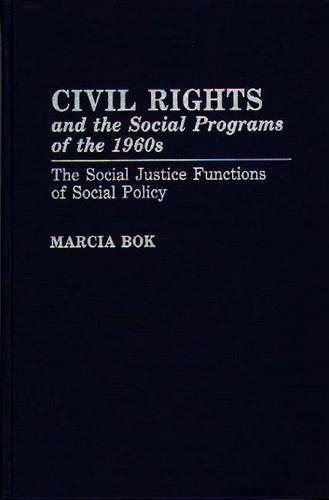
Civil Rights and the Social Programs of the 1960s: The Social Justice Functions of Social Policy
(Hardback)
Publishing Details
Civil Rights and the Social Programs of the 1960s: The Social Justice Functions of Social Policy
By (Author) Marcia Bok
Bloomsbury Publishing PLC
Praeger Publishers Inc
22nd July 1992
United States
Classifications
Tertiary Education
Non Fiction
Constitutional and administrative law: general
Social and ethical issues
Social welfare, social policy and social services
Social and cultural history
347.30285
Physical Properties
Hardback
200
Description
Although social legislation in the United States is always in the tradition of social reform rather than fundamental social change, the 1960s are considered a progressive period because of the union of government and societal obligations; class consciousness was aroused, and the redistribution of power and resources were salient issues. In "Civil Rights and the Social Program of the 1960s", Marcia Bok describes the background, analyzes the process of decision-making, and traces the passage of selected landmark decisions of the 1960s. She tracks the changes that have occurred in this legislation in the last two decades, and discusses the current and possible future status of social policies and programmes. The legislation examined is chosen for its diversity and reflection of great society programmes, and includes: the Civil Rights Act, 1964; the Community Mental Health Centres Act, 1963; the Economic Opportunity Act, 1964; Medicare and Medicaid, 1965; and Head Start, 1965. Bok considers the concepts of equality and social justice as the bases for the social legislation discussed, and includes analysis of historical, political, and legal aspects of the civil rights movement and concurrent events.
Author Bio
MARCIA BOK is Professor Emeritus of the University of Connecticut School of Social Work. She has been a practicing social worker, directed social work research, and taught social research and social policy for more than twenty years. She has published in the Journal of Gerontology, Social Service Review, and Affilia: Journal of Women and Social Work.
